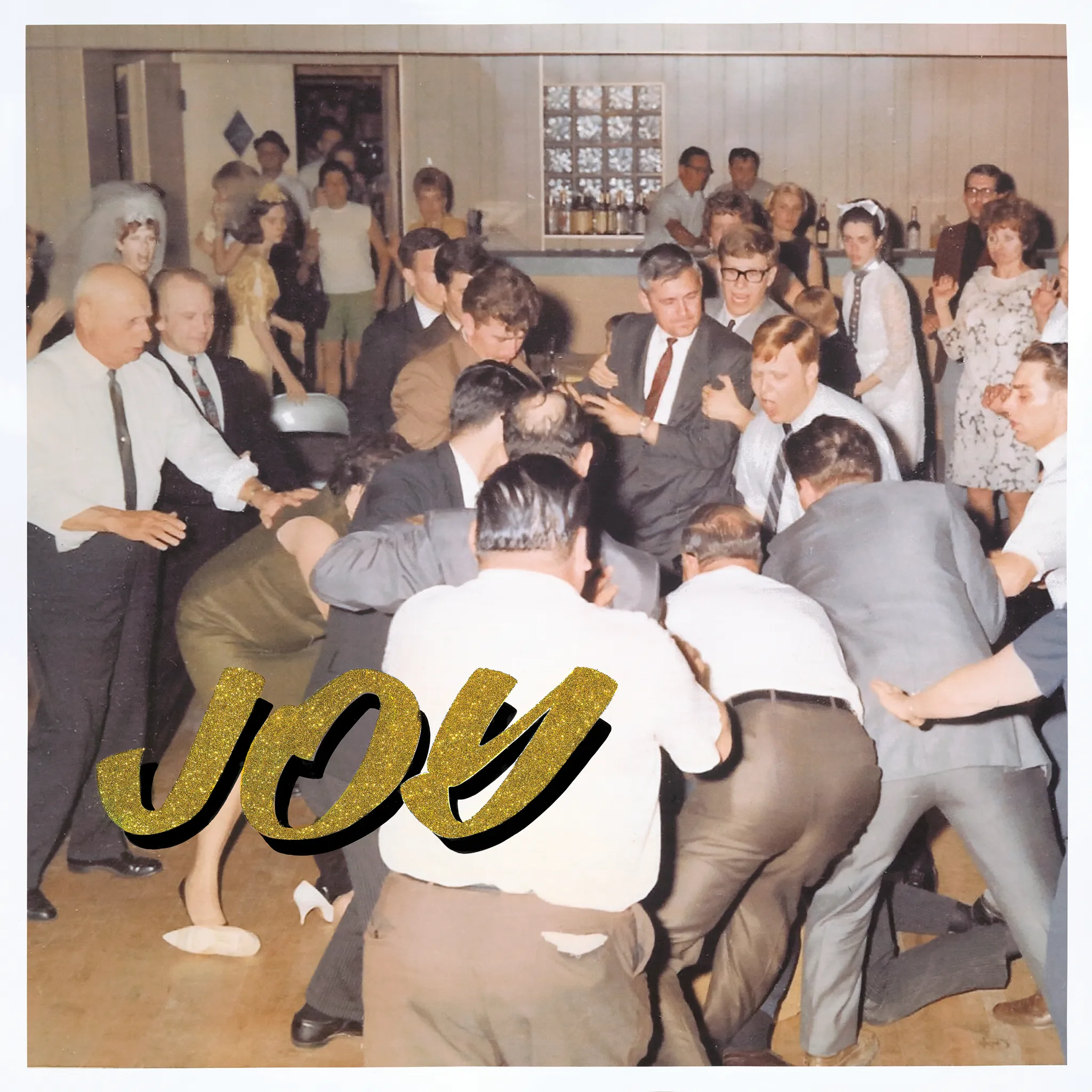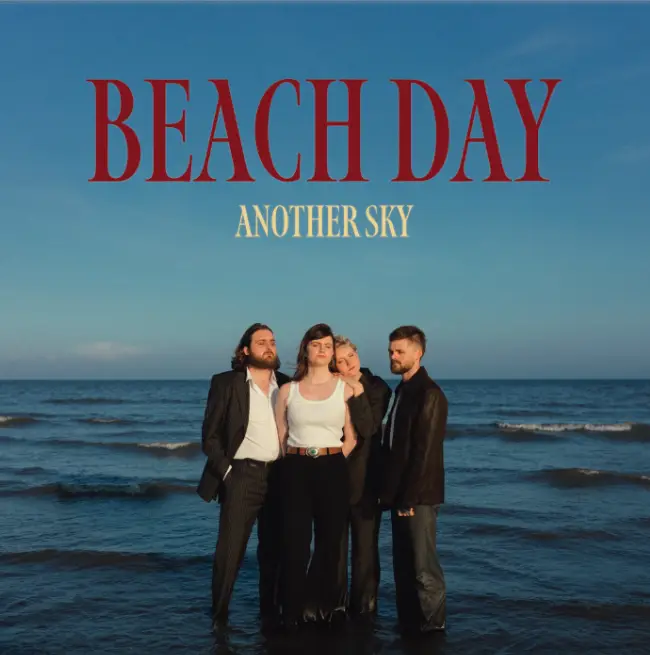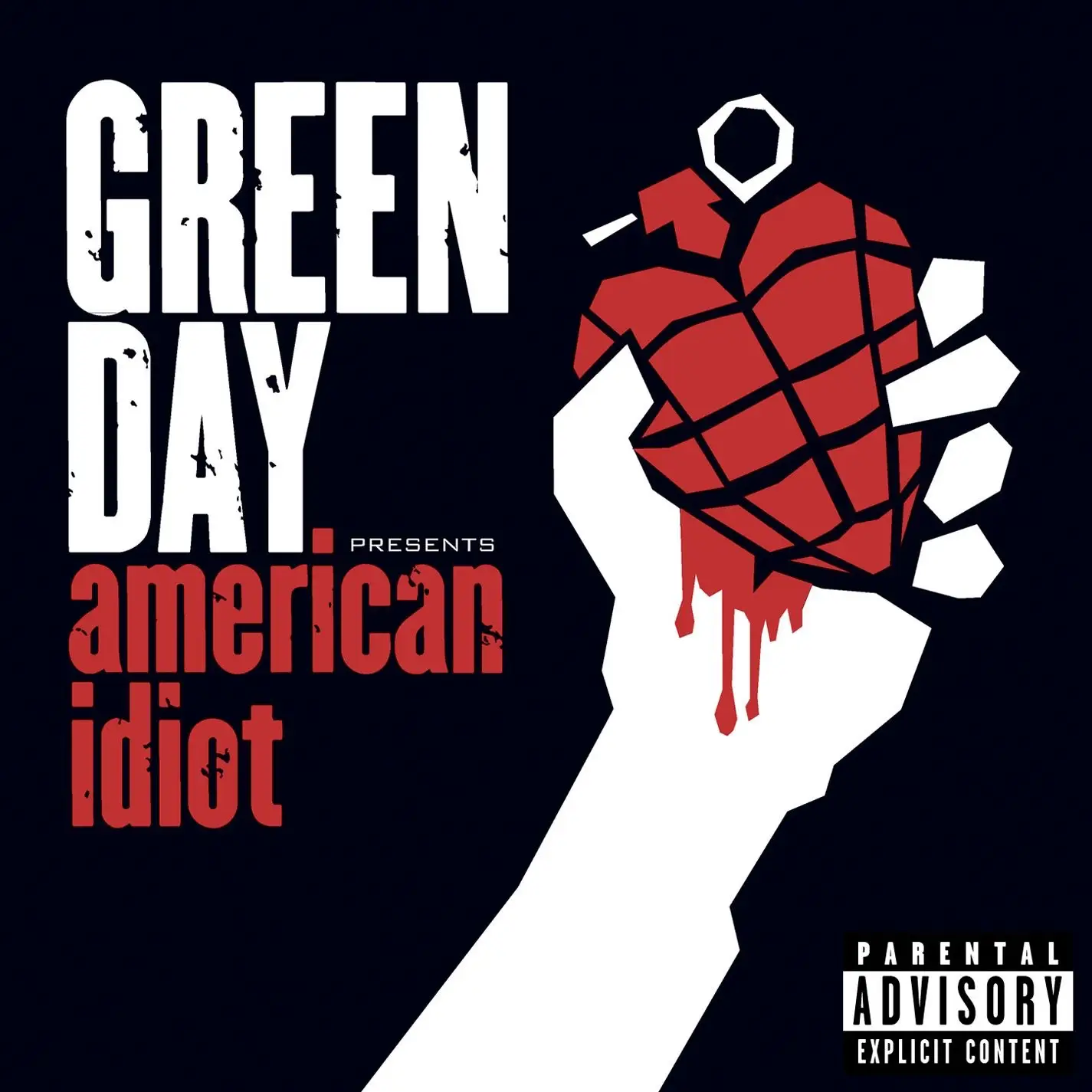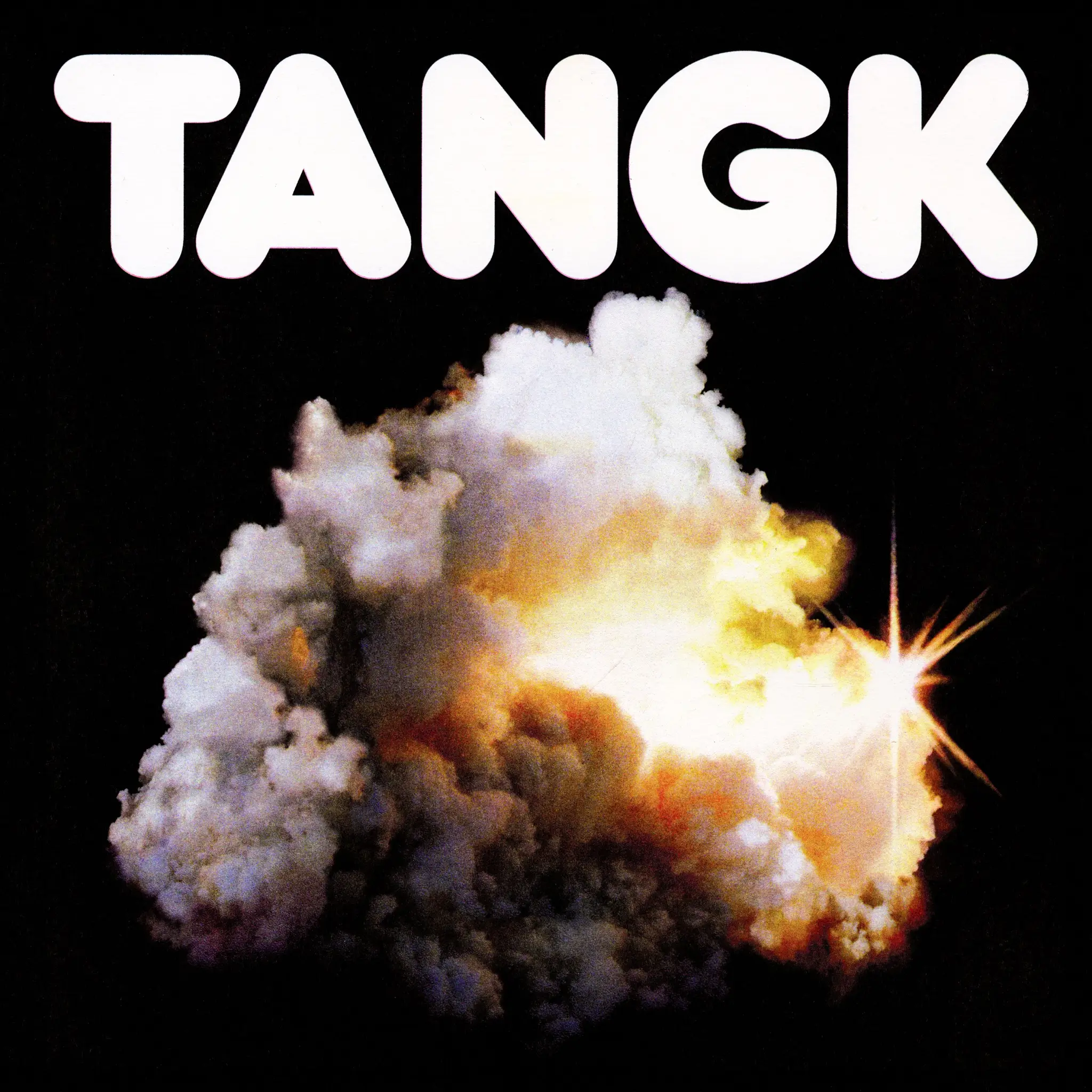Interview Zulu Winter: ‘Alternative Is The Dirty Word Now’
Louise Morris catches up with Henry and Guy to chat about analog militancy.
Zulu Winter have been locked away in a recording studio for the best part of two years, recently erupting on to the live scene with a packed out gig at CAMP, fuelling the fervour which has bubbled around them since their debut single’s release last November. Luckily, this attention hasn’t overwhelmed the band who are rising to the challenge, gigging incessantly after the release of their first album ‘Language’.
DIY catches up with Henry (guitar) and Guy (drums) to chat about analog militancy, the new dirty word in town, storm outs and how all they really want is to hang out in hotel corridors and have a bear stage invasion…
It seems that as soon as you released your first single ‘Never Leave’ you immediately attracted a lot of acclaim and opportunities – playing at BBC Radio 6 Introducing session at Maida Vale for Steve Lamacq and signing to Play It Again Sam. Did it feel like this for you or was a lot of hard graft involved before the single’s release?
Henry: A bit of both really. There was obviously a lot of work that went in before we put anything on vinyl or did any shows - it looks really quick from the outside, to the public- but there was about 18 months recording, going mad in a room without playing any shows and writing.
Guy: And kind of really wanting to put stuff out in a way.
H: It goes against your instincts as musicians, when you write something that you’re proud of, that you like, you want to put it straight out and there’s a lot of holding back. So yeah in a way there was like a lot frustration and wanting to do it.
You’ve just released your debut album ‘Language’ this week – are you slightly over protective as it’s something you’ve nurtured from so long and withheld from the public or are you excited to let it loose?
H: I think it’s a weird one because obviously once it’s recorded, it’s been mastered and it’s packaged you’ve gotta let it go ‘cause there’s always going to be things that you hear that aren’t as good as you think they should be and there’s things you’d do differently but I think at some point you’ve got to let it go and you learn those lessons for the next record. It sounds like a very odd thing to say but I don’t really feel that much attachment to it now. I mean I really, really like it and I’m very proud of it but…it’s that weird sort of thing, the process is very interesting of making something, but once it’s actually created…I think, perhaps the listeners have a stronger relationship with it than perhaps the people who’ve made it.
G: At the moment I feel quite a lot of distance from it, and I think like two months ago when the mix process was like…we were just listening to it so much and you lose perspective. It’s really difficult to know, to be able to judge how good it is in a way, as a record and now we concentrate on the live show and make the live show as good as we can and starting writing again and thinking of the next record. It’s just time for everyone else to hear it and see what they think!
H: Definitely, like really chuffed with it, I think it’s really, you don’t…maybe there are bands that record something and then they listen to it as a fan would. You know like kind of get home and sit around…you can’t really! Sometimes when people are asking you about it and you’ve got to try to not sound that dejected or sort of bored in it because it’s not boredom, it’s that weird mix of being so, so close to it and not really listening to it anymore because you’ve spent 16, 18 months working on it.
All your releases have been on independent labels and I wondered is that because you’ve got some sort of affinity for them, that home-grown element with smaller labels, or whether it’s purely because they’ve allowed you greater creative freedom?
H: Eer ooo, we met majors, we met quite a few of them. There’s still maybe one major that I thought the team there was really good and they were doing something interesting. I just don’t like their way of working.
Big scary contracts…
H: And I think also just every time we went into a major label meeting, James our manager, would see us come out of a meeting, he’d be like “well a major’s not going to work for you guys is it!” [laughs] ‘Cause we’d come out like “God there’s no fucking way I’m working with that dude, and I can’t believe he was talking about music like that!” And then we’d come out of a meeting with an indie and it was yeah, really good.
G: But I think when it comes down to labels, it’s literally just like, you meet the labels, you meet the team and do you get on with them? Can you work with them? But at the moment it feels right, it feels good. But when it came down to the first release, with Double Denim, that was just really exciting ‘cause like, there’s nothing better than a label like Double Denim.
H: I met them through twitter!
I was going to ask about that, whether you think the way of being a musician has changed, particularly in the world of blogs and twitter when things like that can happen?
H: So much, like the way it’s consumed and the way it’s written which is probably one of the more negative and depressing aspects of it and that was something that in the album we paid a lot of attention to which is using proper gear, you know, using hardware not computers. Obviously it was recorded into a computer and we mixed a lot of it down to tape and stuff and it was…We wanted to make a proper record that was gonna have a lot of fidelity and depth that was going to stand the test of time. Not as, you know, “this is going to be regarded as a classic album” or whatever but it’s all going to sound good in twenty years time. We’re all very interested in sound degradation and I think that now with laptops and stuff, I think you can hear the difference from someone that sits in their bedroom. It’s not to say that everything has to be recorded in a studio, it’s just that maybe sometimes people don’t pay as much attention to it because it’s so quick to get it out that you can write something on a laptop and you can have it out in the public sphere like that second. Has the level of care that’s really needed gone into this? Or is it just a case of “I can put it out so I’m going to”. Which is a good thing as well but it…it’s a really complicated one. Like listening to ‘Selected Works’ by Aphex the other day and listening to the sounds on that, which obviously wasn’t laptop based, then you listen to a lot of the people doing laptop music now that are regarded as being the forefront of the scene and it’s like the sound hasn’t pushed on that far. I don’t know whether that’s just ‘cos Rich is a fucking genius but it’s interesting to look at that sort of mix of someone using hardware and someone using a computer and they’re still not managing to get the richness of sound.
G: Yeah, it’s weird. You don’t want to end up sounding like a snob and just saying it for the sake of saying it but if you think about records that have stood the test of time and using the gear that was used to make those records, the chances are it’s probably going to stand the test of time again.
H: It’s a big conversation and we’re always having it, we’re always arguing about it and we won’t rule out, we’re not analog militants but it’s definitely an interesting conversation.
It’s interesting that you’ve mentioned collaborations with various bands previously, because I was talking with a more folky band recently and they were saying that it’s very idiosyncratic for folk having this communal feel and they collaborate a lot more, they think, than any other genre and I was wondering what you thought about that because obviously you’ve had quite a lot of support from other bands?
G: I don’t think that that’s necessarily true. I think that it’s when you look at like folk and what is basically pop, you know bands like Mumford and Sons and Laura Marling and it’s well documented that they’ve all collaborated together, so I suppose perhaps it looks like that to the public eye, that the folk scene are all collaborating lots but we collaborate with lots of people it’s just not necessarily known.
So have you ever thought of mixing it up a bit? Because I mean if you all play in other bands, have you ever thought of having an epic show where you all play in five different bands?
[Both laugh]
G: That’d be great!
H: I don’t know, we’ve always been fairly isolated as a band but we’ve all worked and played with other groups and done different stuff but when it’s come to us, we’ve not ever been part of any scene… but I kind of like it!
It’s quite difficult to pigeonhole any music and I’ve heard that you’re not so keen on giving yourself a genre label but you’ve got some definite pop-hooks in your songs. Pop’s had a bit of a comeback recently and I wondered what you feel about pop not being a “dirty” word anymore, with people being more proud to be associated with it?
H: I was having a conversation with Dom, our keyboardist, about this last night and he was saying that alternative is the new dirty word. So many people come around, and come full circle now and said “I’m not ashamed of being pop, pop’s not a dirty word” but actually saying I’m proud of being alternative is the dirty, dirty word now.
So I guess the more subversive thing to do is to label your selves “alternative” and be forthright with it!
G: Well, I think the other thing is the benchmark and the bar of what pop is, is different now because of the internet. I don’t know why but I always cite Animal Collective as an example. If you think about ‘In The Flowers’, that as a song is really poppy but also really weird as well and that became a massive single, in like a pop sense and I don’t think 10 or 15 years ago that would’ve happened.
H: It became mainstream, didn’t it?
G: I think what pop music is has changed quite a bit recently and it’s allowed to have a weirder side to it, and more hidden kind of hooks.
You’re a London based band, and with London having both a reputation for cutting edge new music but also the listeners’ relentless pursuit for the next big thing, are you a little afraid of coming out having had this acclaim and then really having the demand of making something last amongst a crowd that can be quite fickle?
G: Massively yeah.
H: But also I think we put enough pressure on ourselves to people that we don’t know it doesn’t make that much difference to me at least. I think there’s a lot of pressure from each other to make this work and to be the best band that we can be and to make the best music that we can and we try and ignore a lot of the other stuff.
G: Of course you think about it.
H: Just be calm about it. It’s flattering and it’s nice and it’s obviously better to have some attention than none ‘cause otherwise we wouldn’t be in the position of having a label and putting out a record, playing all these festivals and travelling. But we realise that it’s the nature of it, that we’ll disappear quickly and it will be someone else.
But do you feel that that drives you to, for example, make your live show a really big spectacle so that will inspire people to come back again for more?
G: Not them, we do that because people pay increasingly high ticket prices and you need to be good - not just five dudes standing there and looking a bit bored playing guitars. The visual side that’s something we really want to get involved in because it should be an attack on all your senses.
Lots of people seem to read into you guys being very well-rounded individuals.
[Both laugh]
You’re into art, film and literature judging by your blog, but looking back, what extra-curricular things at school were you persuaded into to become so well rounded now?
H: I don’t know, it’s all because people started saying we were literate or whatever and most people are! Most people read books, it’s only because we’ve got this blog where we’ve chosen to put up the weirder stuff that we like…I definitely don’t think we’re all well-rounded that’s for sure!
[Both laugh]
But as a kid what in particular interested you outside of music?
H: I started my first band when I was 11, so I’ve not really done anything else.
G: [laughs] I dunno there’s been other things I guess.
H: You were into skateboarding!
G: Well actually yeah, and I’ve always been very fond of the theatre as well.
H: There’s nothing wrong with that!
So you’re off on tour very soon you’ve got a lot of dates up and down the country – do you have any particular annoying habits that you’re going to be inflicting on each other on those long tour journeys?!
H: A few yeah.
G: These guys just all smoke loads and I don’t smoke so that gets really annoying actually. I gave up smoking a couple of years ago.
H: A couple of years ago…!
G: It was! A good two years ago, and so I get irritated with these guys all chain smoking the whole time – look he can’t wait to light that up! But no, it’s so important to like not piss each other off on tour I think.
H: But it happens a lot!
G: It happens. I think when you’re in a band one of the most valuable things is just to not get really fucked off with each other and split up! It happens again and again, the same old story like maybe three or four [albums] and then they all fall out and have separate tour buses and can’t stand each other. And it’s just you know you hear it so much and it’s just like…we need to avoid that!
Has there ever been a moment when there’s been someone who’s had a hissy fit and stormed of the bus?
G: Lots!
H: Loads of that… Not for a while actually, when we were younger there were a lot of them, storming out of rehearsals.
G: Storm outs yeah! [laughs]
H: We haven’t for a long time. It’s amazing and we have a lot of fun but we also take it very seriously and we all know that we’re very lucky to be doing this and we don’t want to fuck it up, so um, hissy fits aren’t taken that well by anyone.
G: I think there was an incident up at SXSW in March, it was probably that long day when we played three shows, and went out for some drinks and we got back to the hotel and I have this thing where I just really like to sit in a corridor… I actually fell asleep in a hotel corridor once! Sometimes because we all share rooms a lot on tour and it’s just nice to like go and sit in the corridor and I was just sitting in the corridor reading the paper at like 4am and each one of them poked their head out at individual moment s and were “are you alright?” and I was just like “I need to sit in the corridor…” have some time alone…
You’re playing a lot of festivals in the summer and Bestival’s one of them, now you know they have a big theme and obviously it’s fancy dress – have you got any ideas for your costume? Will you be embracing the Bestival atmosphere?
H: I, what I’d like to do is erm, all wear bear costumes, this comes mainly…
G: Have you thought about this or is it just-
H: Yeah! [laughs] Na no no bit of both… My brother is married and he’s got four kids and he asked me last year, if you play on the main stage at Glastonbury ever - so imagine we’re playing a set, lots of people “yeaaahhh” and then we suddenly stop and start playing “dododerderdiderdoderder” [starts singing the theme from the Teddybear’s picnic] and my brother and his wife and kids just in height order just walk across the back of the stage, disappear and then we just carry on, no one says anything and just carry on with the song. And everyone will be “what the f**k was that?!”
G: It could be this psychedelic moment when we just- freak everyone out!
Zulu Winter’s debut album ‘Language’ is out now via Play It Again Sam.
Read More
Zulu Winter Announce ‘Key To My Heart’ Single Release
The band will round off their summer of festivals with the release of the track through Play It Again Sam Recordings.
26th July 2012, 2:44pm
Listen: Dems Remix Zulu Winter’s Silver Tongue
You can hear the remix of the song taken from the London band's debut album 'Language' now.
2nd June 2012, 10:52am
Zulu Winter - Language
3-5 Stars
Eccentric indie pop with a slightly off-kilt flavour.
12th May 2012, 9:59am
Zulu Winter Announce New Single ‘Silver Tongue’, Stream No Ceremony Remix
The new single will come out on the same date as their debut album 'Langauage' this summer.
6th April 2012, 3:32pm
Featuring SOFT PLAY, Corinne Bailey Rae, 86TVs, English Teacher and more!





